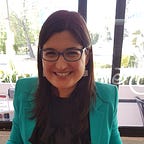Learn a Second Language? Now?
In middle school, I began studying Spanish. I could conjugate verbs and select the correct multiple choice response for the reading passage. But I could not, in fact would not, speak more than a sentence of Spanish aloud.
Why was it that after 6 years of straight A’s I could barely introduce myself in another language?
I thought I couldn’t, so I didn’t. Early on I bought into a commonly believed lie — that since I hadn’t started speaking Spanish as a child, I never would.
While there is some truth to brain flexibility and sound acquisition in early years, there is no logical reason an adult can’t learn to speak a second, third, or fourth language.
But most of the success has to do with mindset. You see, after passing through successful life hurdles like high school, work, and maybe even raising children, adults feel confident. I sure did.
I had graduated with my bachelor’s degree, taught high school, driven solo across the country, traveled to Europe, had a good credit score, and wasn’t terrified of public speaking. Trying to speak in Spanish as a second language made me feel incompetent. And I hated it.
I despised feeling unsure of myself. Even in the U.S., walking into a Mexican restaurant and asking for “un tamal, por favor” made my palms sweat. I chose to speak in English and order “one tamalay, please,” because I felt like an adult in English. Speaking Spanish brought me back to being a child, ignorant of what people said around me and feeling foolish about my pronunciation and sentence structure.
But when I finally decided I was going to speak Spanish — not just as a hobby, but as a life skill — I needed to get over myself. I needed to embrace being ignorant.
Imagine how a child learns their first language. They listen, babble nonsense sounds, practice words, and string together sentences like “I not runned”. They try out the language, take in feedback from adults, they adapt, and finally, they learn.
From my years teaching English Language Arts in the U.S., children are still learning the rules of their own native language at age 10, 12, 15, and 18. In fact, most adults actually can’t tell you the difference between a preposition and an adverb. Most native speakers communicate just fine without knowing the rules.
So, I decided to follow this model. I forget about mastering Spanish grammar. And now, age 35, after practicing Spanish like a child for 3 years, I can communicate my ideas and thoughts from politics to religion. Sure, I had a foundation of vocabulary and verb conjugations from those 6 school years, but that isn’t what made the difference.
Instead, like a baby, I decided to absorb the language. Whether it was podcasts, Netflix shows, or movies, I didn’t understand more than 10%. I just listened. Then I read. Here is where we adults have an advantage over children — we already know how to read. We can combine the visual with the auditory and make connections about meaning much more quickly than a child can.
The only reason children learn languages better is that they are shameless natural learners. They ask questions and don’t think about feeling foolish. As adults, we don’t like feeling uncertain of ourselves. We don’t like it when someone looks at us with the “what???” face because our accent mutilated the word we tried to say.
And to be honest, living in Mexico isn’t the only reason I’ve learned to communicate either. It’s given me motivation, sure, but I spend 8–10 hours a day working, speaking, and writing in English. Since I teach and edit online, there are some days I never leave the house. If I chose to, I could still be perfectly comfortable letting my husband navigate the Spanish side of our world.
I could have chosen to watch movies in English and read the news in English. But I chose to purposefully change my habits and absorb my interests in Spanish. And those Spanish grammar rules? I still don’t know them.
But now, I can make my point in a conversation. I can watch Netflix shows and laugh at the jokes. I can listen to podcasts and understand the politics. I can watch movies and see the cultural references. I am by no means bilingual — but I am okay with that. I can communicate.
Once I accepted that I will make mistakes — many and often — I learned to trust myself more. When someone doesn’t understand my mangled Spanish phrase, I try a different way, and I adapt to the feedback.
If you are an adult learning a second language — keep on keeping on. Absorb it, listen to it, try it out. You’ll have to get over your pride, but once you do, you’ll find a whole new world opens up.
